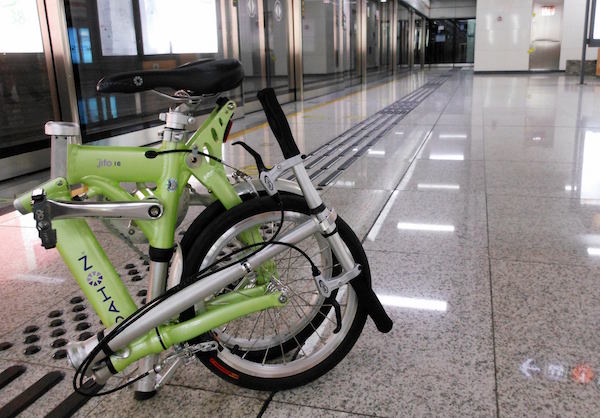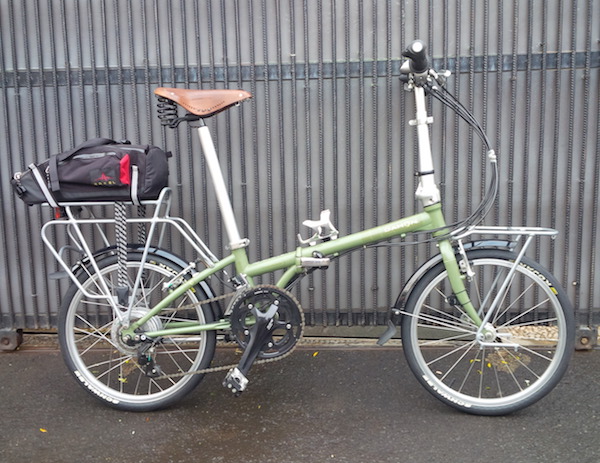
BY JACKSON CHEN | New York City cyclists can now bring foldable bicycles into office building elevators after Mayor Bill de Blasio signed City Councilmember Helen Rosenthal’s “Bike to Work” bill into law.
The new law from the Upper West Side councilmember requires office buildings to allow cyclists to carry their folded-up bikes into passenger elevators of office buildings throughout the city. After clearing the City Council on September 14, de Blasio signed the bill into law on September 28.
“Everyone agrees that biking to work is healthy and good for you,” Rosenthal said. “As a public policy, it’s good to encourage it and make it as easy as possible for people.”
Prior to Rosenthal’s bill, New York City residents were only allowed to bring foldable bicycles, which are no bigger than a carry-on suitcase when broken down, into office buildings using freight elevators.
However, the city’s Department of Transportation noted that freight elevators often close by 3 or 4 p.m., which Rosenthal added is much earlier than most workers leave the office. And if building owners denied them access because of a foldable bicycle, users were forced to lock their bikes up outside and carry theft-vulnerable portions with them. The councilmember, a foldable bicycle user herself, recalled having to carry her handlebars and seat with her after being told she couldn’t enter City Hall with it.
“I remember before I even ran for office, I rode it down to City Hall to attend a hearing,” Rosenthal said. “I ended up having to lock part of my bike up, bring part of my bike up with me, so it resonated with me personally.”
Bicycle theft is up 70 percent over the past four years, she pointed out, so even those portions of a bicycle that can be secured with a lock are not fully safe.
Rosenthal said the new law would not only bring personal health benefits, but also reduce congestion throughout the city by taking cars off the road and reducing crowds inside public transportation. The impact on public transit crowding, however, is not uniformly positive, with the councilmember noting that the subways, the Long Island Rail Road, and Metro North all allow passengers to board with foldable bicycles.
But Peter Frishauf, the director of StreetsPAC, a political action committee dedicated to improving safety and easing congestion on city streets, emphasized that those who live in areas with limited public transportation options will benefit from this law.
“In terms of equity and social justice for those people who are in transit deserts,” Frishauf said, “they can ride a bicycle to mass transit and board the train with their bicycle without having to worry about whether or not they’ll be able to bring their bike into their workplace.”

Frishauf, a lifelong resident of the Upper West Side who said he rides his foldable bicycle everywhere, said he’s looking forward to taking a copy of the new law to some of the more troublesome office buildings. Prior to Rosenthal’s bill, if he was denied access to an office building due to his foldable Dahon bike, Frishauf would have to lock up most of the bicycle and carry around his seat and saddle post.
“One of the great advantages of a folding bike is that you don’t have to worry about them being stolen if you can take them into an office building,” Frishauf said. “That’s really the most important feature. You don’t have to worry about your nice bicycle being stolen or vandalized.”
Frishauf, also the co-founder of Vision Hero, a youth educational program about street safety, said bicycling was the fastest growing mode of transportation in New York due to its health benefits, its recreational and entertainment value, and, in no small measure, the growing network of bicycle lanes created by the city. Now, with Rosenthal’s new law in place, he said, riders won’t have to worry about that last leg of their commute — the elevator ride up to their office floor.
In order to inform the public of the new law, office buildings must now post bicycle access plans to inform their office tenants. And Rosenthal’s legislation makes it illegal for building owners to deny tenants access to passenger elevators because they are carrying their folded bikes.
“Now more people can rest assured that biking to work is an option for them because at the other end they can safely store their bicycle,” Rosenthal said.

















